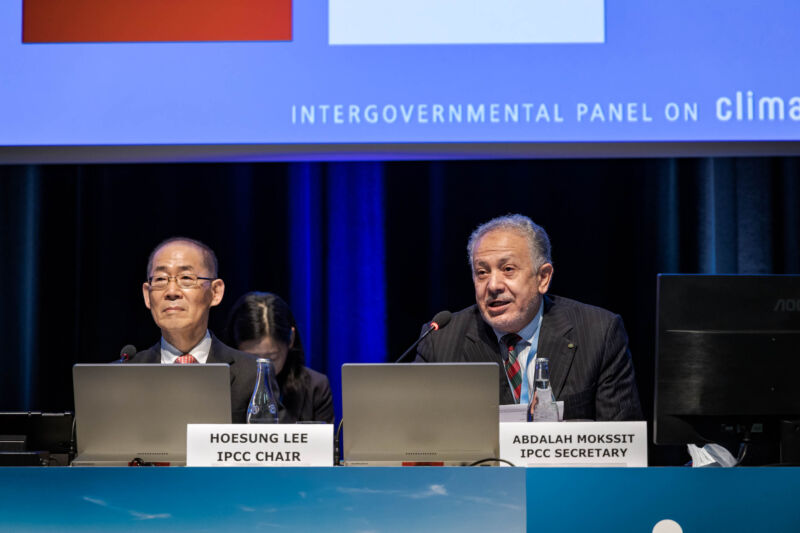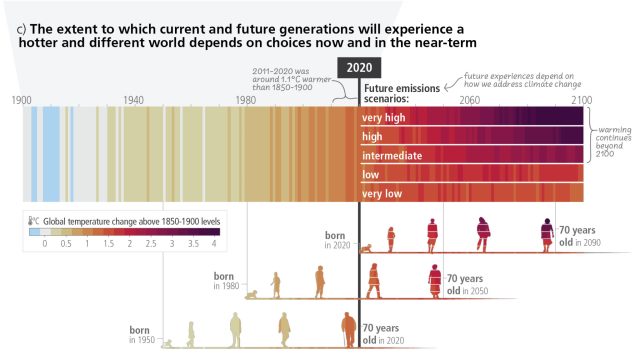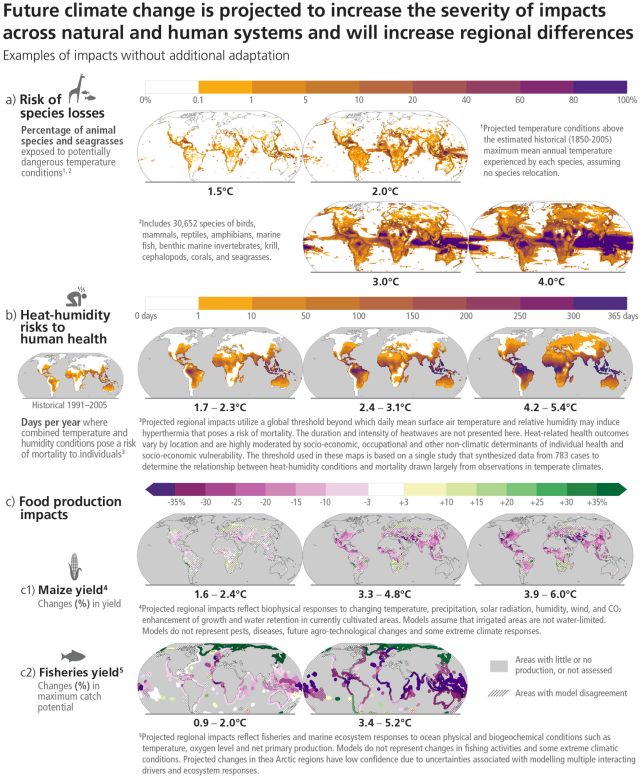

IPCC again advises urgency as it releases last piece of climate report | Ars Tec...
source link: https://arstechnica.com/science/2023/03/ipcc-again-advises-urgency-as-it-releases-last-piece-of-climate-report/
Go to the source link to view the article. You can view the picture content, updated content and better typesetting reading experience. If the link is broken, please click the button below to view the snapshot at that time.

A lot to unpack —
New IPCC climate report contains everything you need to know
Synthesis report wraps up 6 releases over 5 years.
Scott K. Johnson - 3/20/2023, 2:22 PM

The reports produced by the Intergovernmental Panel on Climate Change (IPCC) are massive undertakings, requiring years of effort and hundreds of scientists who volunteer as authors. The sixth assessment report cycle saw its first documents released in 2018, and five more followed through 2022. Today puts a coda on that cycle, as the condensed Synthesis Report is out.
The first three reports were focused on narrow topics: the 1.5°C warming milestone, land use and climate change, and the world’s oceans and ice. The next three followed the traditional structure of previous assessment reports: the physical science of climate change, the impacts of climate change, and solutions.
Each of these reports is meant to represent the state of scientific knowledge on a topic so decision-makers and other interested readers don’t have to take on the many thousands of published studies that form their foundation. The role of the Synthesis Report is to further distill the most important information into the simplest reference that the scientists can bear to put their stamp of approval on. The 18 key conclusions in this report provide an impressively comprehensive yet succinct description of our situation—the ultimate TL;DR of Earth’s climate.
There are no surprises here for those who have read the individual reports in this cycle. Instead, it underlines the fundamentals. For example, “Human activities, principally through emissions of greenhouse gases, have unequivocally caused global warming, with global surface temperature reaching 1.1° C above 1850–1900 in 2011–2020,” the report says.
That warming will continue as long as we keep increasing the concentration of greenhouse gases in Earth’s atmosphere, and the consequences worsen as the temperature rises. There is no shortage of actions we can take immediately to limit warming and reduce those consequences.
AdvertisementReport version 6.0
There are interesting ways our knowledge has improved since the previous assessment report was released in 2013–2014. Projected sea level rise has become a bit clearer, for example, while trends in current weather extremes have been identified with certainty. But the new report’s most important update is that progress on climate change remains insufficient to limit warming to 1.5°C or 2°C despite the fact that significant progress has occurred.
Scenarios that let us hit those targets “involve rapid and deep and, in most cases, immediate greenhouse gas emissions reductions in all sectors this decade,” the report notes. Compared to 2019, global emissions would have to drop about 21 percent by 2030 and 35 percent by 2035 to keep warming below 2°C. To keep the rise below 1.5°C, those numbers would have to strengthen to 43 percent and 60 percent.
Those numbers were emphasized because the next round of Paris Climate Agreement pledges that countries submit will run through 2035.
Another notable theme in this cycle of reports is a focus on equity. As the science increasingly pushed into finer details, recognition that not all regions have contributed equally to the problem—and not all regions are impacted equally—has become more explicit. Effective global solutions must account for the fact that some are more vulnerable than others.
Point the way
The effect of the war in Ukraine on Europe’s energy sector shows just how much can be done when energy transition is a priority. Faced with the need to suddenly function without much of the Russian fossil fuel it had become highly dependent on, Europe is changing its energy use incredibly quickly. This has partly been facilitated by simply switching to other sources of fossil fuels, but investments in clean energy infrastructure have also accelerated greatly—and will have a lasting impact.
The urgency communicated in the IPCC reports is clear: “Climate change is a threat to human well-being and planetary health. There is a rapidly closing window of opportunity to secure a liveable and sustainable future for all. ... The choices and actions implemented in this decade will have impacts now and for thousands of years.”
Future climate change is still driven by our actions, though, and many avenues to progress are open. It is motivation—not knowledge or technology—that remains the limiting factor. The IPCC simply depends on the proposition that knowledge will lead to motivation and give it direction.
Recommend
About Joyk
Aggregate valuable and interesting links.
Joyk means Joy of geeK

